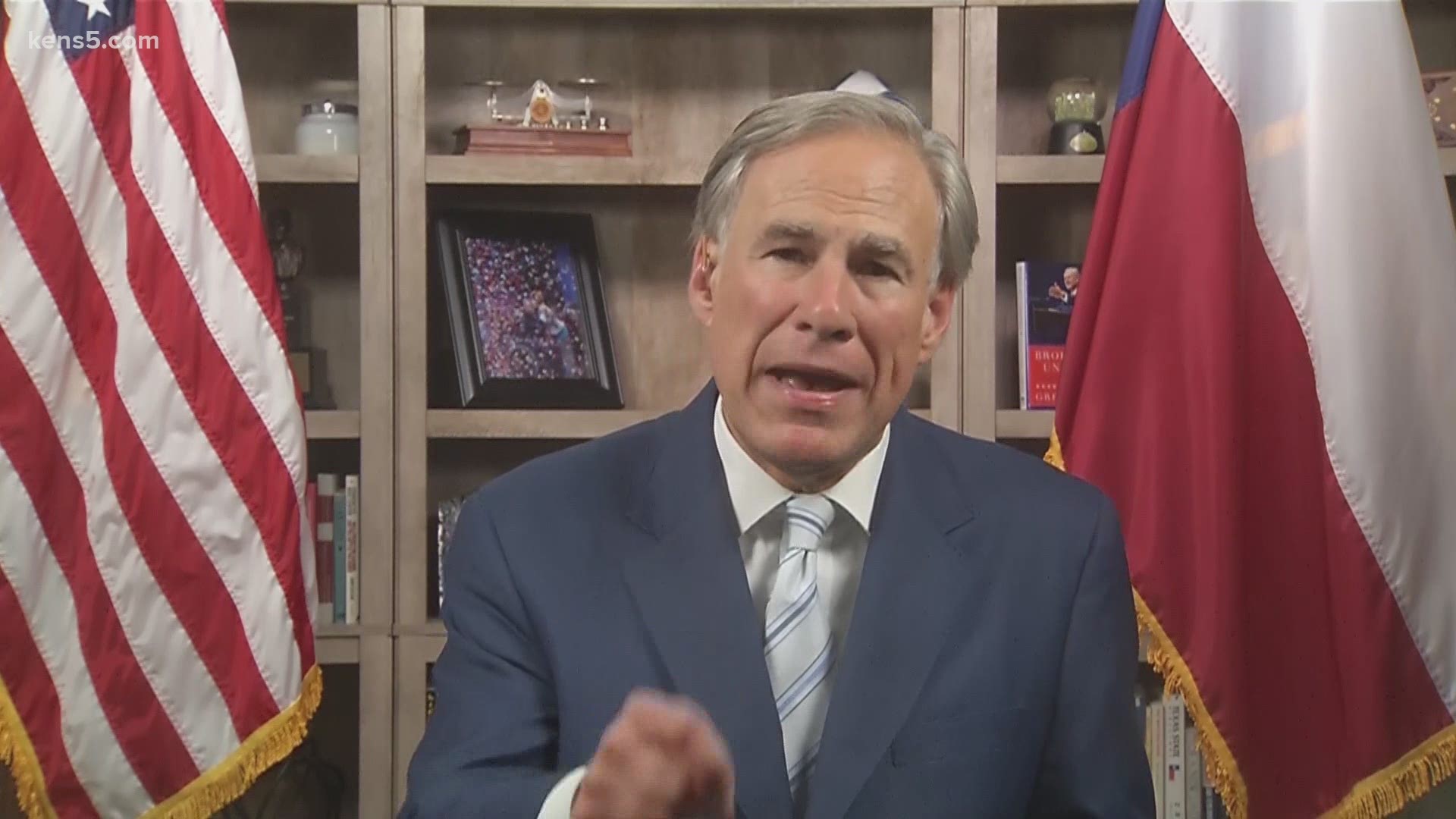SAN ANTONIO — Texas Gov. Greg Abbott says he will call another special session if Democratic lawmakers successfully run out the legislative clock on a controversial voting bill he backs.
"I will be calling special session after special session after special session, all the way up until election day of next year if I have to," Abbott said in an interview with KENS 5.
House Democrats landed in Washington, D.C. around 7 p.m. Monday. Their absence prevents a quorum necessary to advance legislation out of the lower chamber.
Abbott said law enforcement will arrest those Democrats when they return to Texas in a procedure unanimously outlined and agreed to by House members. They would return to the capitol, effectively forced to maintain quorum.
But troopers cannot arrest lawmakers who are out of state.
"It is essential that representatives get back to doing their job in the state capitol - a job that Texas taxpayers are paying them to do," he said.
The spat is centered on a bill that would roll back voting practices that made it easier to cast a ballot during the height of the pandemic.
It would expand early voting hours, but bar counties from expanding hours beyond the legislatures' selected timeframe. It would also ban drive-thru voting events.
Harris county officials pioneered both methods during the presidential election.
The bills would also give partisan poll watchers the ability to move freely about polling places, as long as they do not go inside a voting booth. Currently, they must sit or stand near election workers.
The measures would also require voters to provide more information when they apply for a mail-in ballot. The information they provide would have to match the information on the ballot, otherwise their vote will be rejected. There would be a process for voters to correct their information if their ballot is rejected.
Registrars could not send unsolicited mail ballot applications, though political parties could continue to do so on their dime.
"We are trying to make it easier to vote, but harder to cheat," Abbott said.
Democrats note that the attorney general has suspicions about 44 of 11 million votes cast last year. Abbott says voter fraud is rampant, but convictions are rare because it takes time to sniff out.
"This is ridiculous," Abbott said of the Democrats' exit. "We have business to take care of."

